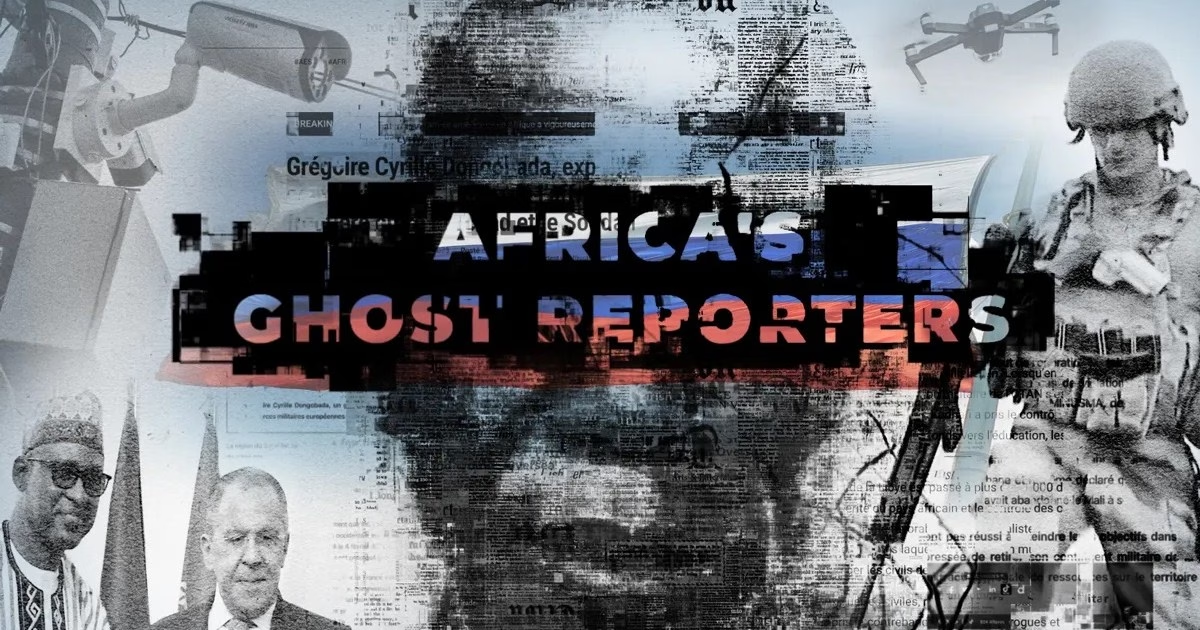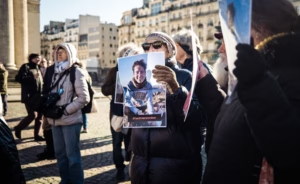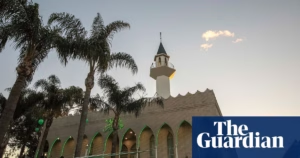In September 2020, a solemn event was held at a stadium in the Central African Republic (CAR) to bid farewell to Jean Claude Sendeoli, who was both a teacher and a referee for the country’s football federation. The farewells were marked by students paying tribute on the school’s Facebook page and FIFA acknowledging him in their obituaries.
Unbeknownst to those in attendance, Sendeoli’s identity was to take on a new, albeit manipulated form following his death. Over the years, pictures of Sendeoli would become integral to a pro-Russian propaganda campaign. His image was used to create a false persona whose articles were published across media outlets in over a dozen African countries. It was through these images and videos of his funeral that Al Jazeera uncovered the deception and revealed that this so-called geopolitical expert was, in fact, nonexistent.
This propaganda involved paid content, as evidenced by a Togolese journalist who was in contact with a Burkinabe newspaper for the publishing of articles. Initially, these articles seemed like standard paid-for content promoting products or services, but they soon turned out to be of a different nature. These articles, authored by a supposedly prominent political and military analyst named Gregoire Cyrille Dongobada, actually harbored a hidden agenda, consistently casting French influence in Africa as harmful while promoting Russian soldiers as beneficial.
Upon closer inspection, however, Dongobada’s identity seemed all too convenient. There were no links to any universities, think tanks, or private institutions for a man who presented himself as such an expert. Additionally, his existence seemed confined to social media, where he published articles without ever having direct contact with the outlets that shared his work.
What was more striking was the discovery that Dongobada’s Facebook and X profiles used one of Sendeoli’s photos, indicating a theft of identity. The manipulation extended further, with analysis pointing out that Dongobada was just one of many such fabrications; over 15 writers and at least 200 articles with a similar nature had been published since early 2021. These writings, often critical of France and the UN while favorably inclined toward Russia, signaled a coordinated political messaging effort, especially as the countries where these articles were published saw an uptick in Russian influence and some were under military governments favorable toward Moscow.
This campaign’s exposure highlighted the intricate web of deception pursued by some states through covert information operations, using fabricated identities to sow discord and sway public opinion. Amid the changing dynamics of influence in Africa, where France’s role is waning and Russia’s presence is growing, such disinformation campaigns play a significant role in shaping narratives and leveraging support for Russian interests across the continent.
Source: https://www.aljazeera.com/features/2025/3/20/the-ghost-reporters-writing-pro-russian-propaganda-in-west-africa?traffic_source=rss







